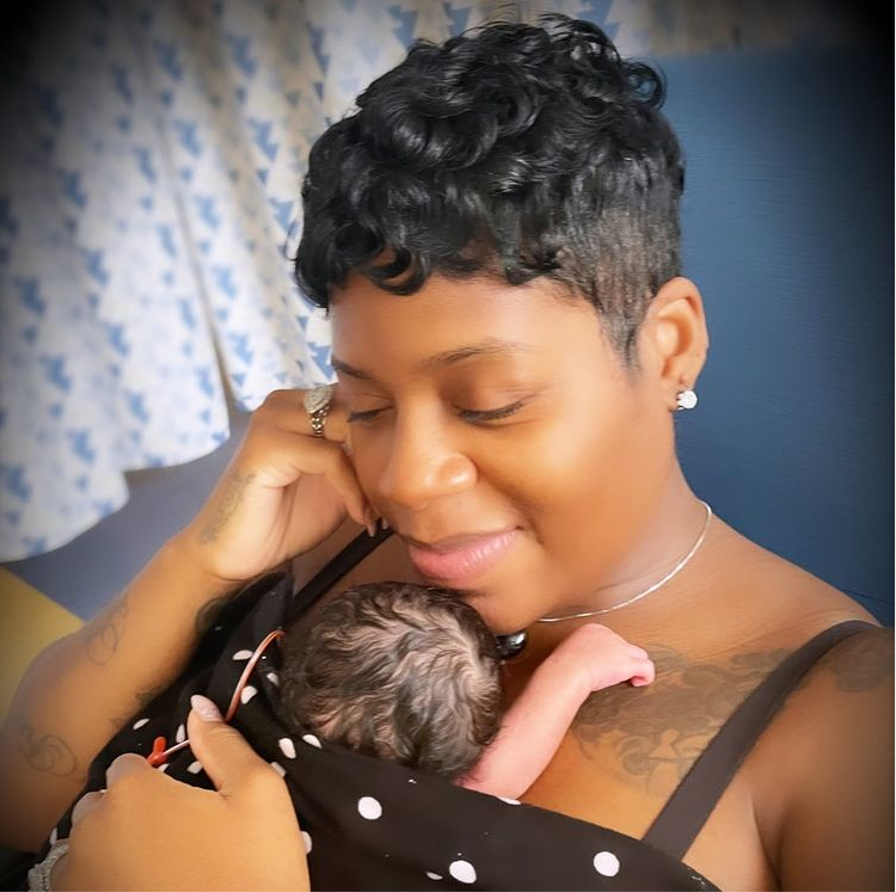
Fantasia Barrino has a lot to sing about lately. Although she welcomed her third child in late May with her husband, Kendall Taylor, the baby's early arrival caused her to stay in the NICU to be monitored and cared for.
But she just came home and Fantasia couldn't be more happy and emotional. Fantasia posted that her newborn daughter, Keziah, was finally leaving the Newborn Intensive Care Unit one month after her birth.
On Tuesday, the 36-year-old American Idol alum shared a sweet photo of baby Keziah in a precious white ruffled outfit with matching booties, writing, "Welcome Home @keziahlondontaylor🎀."
View this post on Instagram
Earlier this month, Barrino posted a selfie in which she was holding the child with the caption, 'Almost Home.'
Barrino opened up about her daughter in late May, writing, "Keziah was born a little too early but she is a fighter just like her Mother."
Each year, about 1 in 10 babies in the United States is born prematurely. Premature babies may not be fully developed at birth. They may have more health problems and may need to stay in the hospital longer than babies born later. Thanks to advances in medical care, even babies born very prematurely are more likely to survive today than ever before.

Babies born before 34 weeks of pregnancy, like Keziah, can be more likely to have health problems. And babies born between 34 and 37 weeks of pregnancy are also at increased risk of having health problems related to premature birth.
Some premature babies need to spend time in a hospital’s newborn intensive care unit (NICU). Premature babies stay in the NICU until their organs develop enough to stay alive without medical support. Some babies need NICU care for weeks or months until they can breathe on their own, eat by mouth and maintain their body temperature and body weight.
Premature babies may have more health issues than babies born later including:
Anemia - This is when a baby doesn’t have enough healthy red blood cells to carry oxygen to the rest of the body. Anemia can cause low levels of oxygen and glucose (sugar) in a baby’s blood and make it hard for a baby’s organs to work properly. Premature babies in the NICU may have anemia because they get regular blood tests to check their health. They often can’t make new blood cells quickly enough to replace the blood cells they lose during blood tests. This can lead to anemia.
Apnea of prematurity (also called AOP) - This is a pause in breathing for 15 to 20 seconds or more. It may happen together with a slow heart rate called bradycardia.
Bronchopulmonary dysplasia (also called BPD) - This is a lung disease that can develop in premature babies as well as babies who have treatment with a breathing machine. Babies with BPD have a higher risk of lung infections than other babies and BPD sometimes leads to lung damage.
Respiratory distress syndrome (also called RDS) - If a baby has RDS, her lungs can’t make enough of a substance called surfactant. Surfactant is a slippery substance that keeps small air sacs in a baby's lungs from collapsing.
Infections or neonatal sepsis - Premature babies can get infections more easily than other babies because their immune systems aren’t fully developed. The immune system protects your body from infection. Infection in premature babies can lead to sepsis, when the body has an extreme response to infection. Sepsis can be life-threatening.
Intraventricular hemorrhage (also called IVH) - This is bleeding in the fluid-filled spaces (also called ventricles) in the brain. The more premature a baby is, the more likely he is to have IVH.
We are thankful that little Keziah is doing well. Speaking on the Tamron Hall Show the following month, Barrino said she and Taylor had been on 'a three-year journey' to conceive their newborn.
The award-winning Fantasia also mom to Dallas Xavier, 8, and Zion Quari, 19, from a previous relationship.









